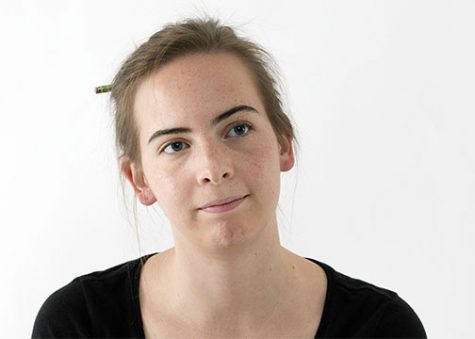The Catholic contraception controversy
Loyola will no longer cover contraception for employees, but the university’s new health care provider will be required to
October 30, 2014
Loyola’s new health care policy will no longer cover contraceptives because of the conflict between Catholic teaching and the use of contraceptives. However, this does not mean that contraceptives will be unavailable to Loyola employees.
This decision comes from Loyola’s recent change in health insurance provider and this summer’s Burwell v. Hobby Lobby Supreme Court decision, which states that religious institutions can forego paying for their employees’ contraception. Instead, the health insurance provider covers contraception for these employees at no additional cost.
The Rev. Kevin Wildes, S.J. announced on Oct. 3 that the university had filed a letter with the Secretary of Health and Human Services stating the university’s objection to covering contraceptives.
Enrollment for this new insurance program began on Oct. 27, Wildes said, and the opt-in option for employees begins Jan. 1, according to Julie Thibodeaux, director of the Women’s Resource Center.
Ross Matthews, Loyola’s director of human resources and the chair of the Fringe Benefits Committee, which gives input to employee benefit programs, said that the university did cover some contraceptive methods before the Affordable Care Act.
“The ACA mandates that all FDA-approved contraception methods be covered at no cost, and that triggered the decision,” Matthews said.
These FDA-approved contraceptives include the morning-after pill, Thibodeaux said.
Some Catholics consider emergency contraceptives like the morning-after pill to be a form of abortion.
“I think the University has responded to the situation in the best possible way at the present time. As an institution of the Roman Catholic Church, it has a responsibility to that larger body that cannot be ignored, but at the same time it has made sure that its employees are covered,” Elizabeth Goodine, religious studies professor, said.
The Rev. Ed Vacek, S.J., Stephen Duffy Chair in Catholic Studies and sexual ethics professor, said that the decision comes from the university wanting to do the highest good it can.
He explained that people often cooperate with evils that they cannot avoid, like polluting the environment when driving cars.
“You’re going to co-operate inevitably and the best thing to do is just be as far away from it as possible, but you can never be all the way away from it,” Vacek said.
Vacek explained that under the Catholic principle of cooperation, the university could justify providing a health care policy that included university-covered contraception.
“But Father Wildes was able to even negotiate a better thing,” Vacek said.
This better thing he refers to is the university’s ability not to cover contraceptives, but still have the legal requirement for contraceptive coverage met by the health insurance provider.
This does place some moral culpability on the university because it is supporting a company that provides contraceptives. However, Vacek said that the university can justify support for the healthcare provider as inevitable cooperation, which the law seems to require of the university.
Meanwhile, he explained, the health care provider benefits from the situation as well because it saves maternity costs by providing contraceptives.
Ultimately, Vacek sees the new system as a good balance.
“I think it’s a win-win,” Vacek said. “We’re lucky. We’re lucky to be able to do this.”







